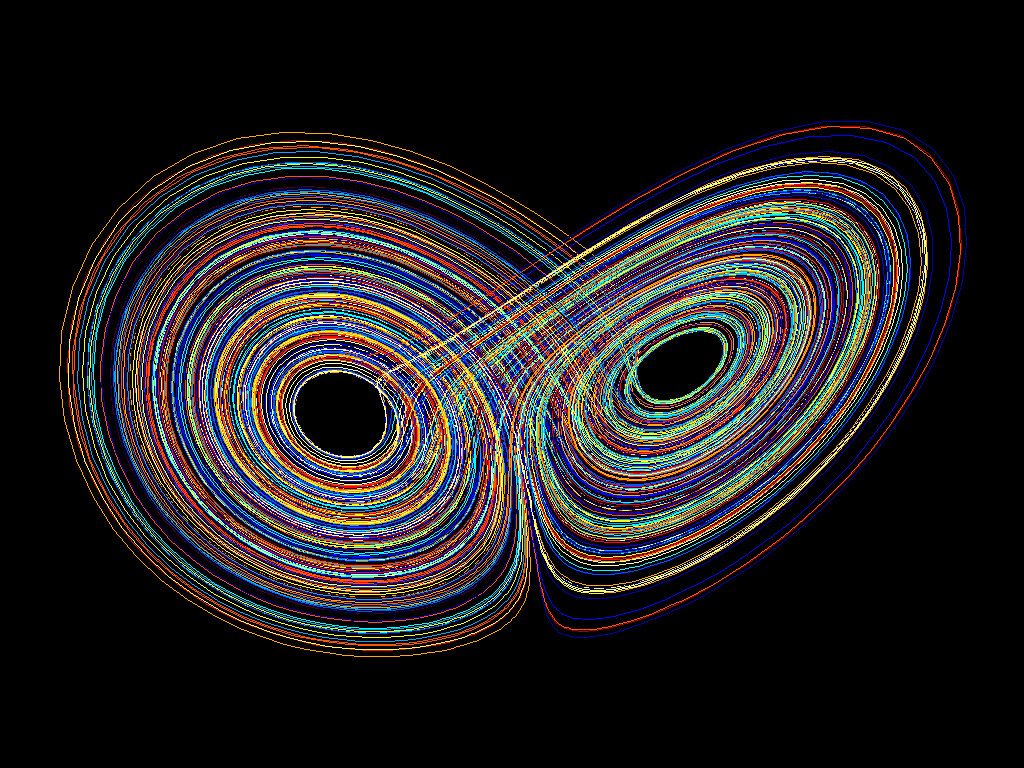
Recently, the poetry that swirls around chaotic processes has infiltrated my thoughts, given rise to new ideas and connectivities. The instruments I use, based around Rob Hordijk‘s rungler circuit, function via the double-well principle (sometimes called “strange attractors”); they settle into patterns that remain in place until a new condition, or stimulus, is introduced into the system. What I like to tell audiences is that, alongside the dynamics of random event generation (not well-received technoblather among non-techies), chaotic systems are always seeking stasis — or “peace,” if you will. Anyone can relate to this, lending my presentations a resonance which elevates a concert of abstract sound generation into an ecstatic immersion. I like to draw audiences into what I’m doing gradually and, in a manner of speaking, unfold an outward-facing synaesthesia of abstract sounds connected with speaking.
In June 2024 I did one of these shows to a sellout audience at CNMAT in Berkeley.
It turns out that there is a ‘poetics of chaos.’ A chaotic system, far from the popular conception of the inside of a tornado — violent, uncontrollable, never-ending disaster — is constantly seeking stability. It’s just like you and me! It wants peace and stability. It will settle into comfy stasis and never get up from the easy chair again, if there are no new conditions introduced into it. A chaotic system starts from a discrete set of variables that determine where it will end up. Thing is, even with the same opening conditions, it doesn’t reach the same outcome with each iteration. Launch it, and it may head not for Mars but straight into the sun, or into the nearest 7-11. Even with the same initial conditions, the trajectory cannot be predicted with certainty.
Each day, most of us wake up with more or less the same initial conditions as the day before. But the day never ends up in the same place. It’s chaos. You could wake up, get out of bed, and die: that’s chaos. In fact, this particular outcome already happened to somebody, you can be sure. Somewhere, sometime in the vast pantheon of human history, some poor schmoe woke up, said, “Jeez, what a great day! I can’t wait to get started!” — then slipped on a banana peel, or a banana slug, or a slug of whiskey, or a whisk broom, keeled over and put their face through the window-pane, or that heavy glass ashtray they never could stand or that sharp corner of the night-stand, and, boom. Gone in a minute. This is living, and dying, with chaos in action. The multiple-universe theory gives a daunting picture of chaos emerging, and leading to a new possible universe existing alongside the one we think we’re living in, every moment. Every possible outcome is emerging, already, all the time.

